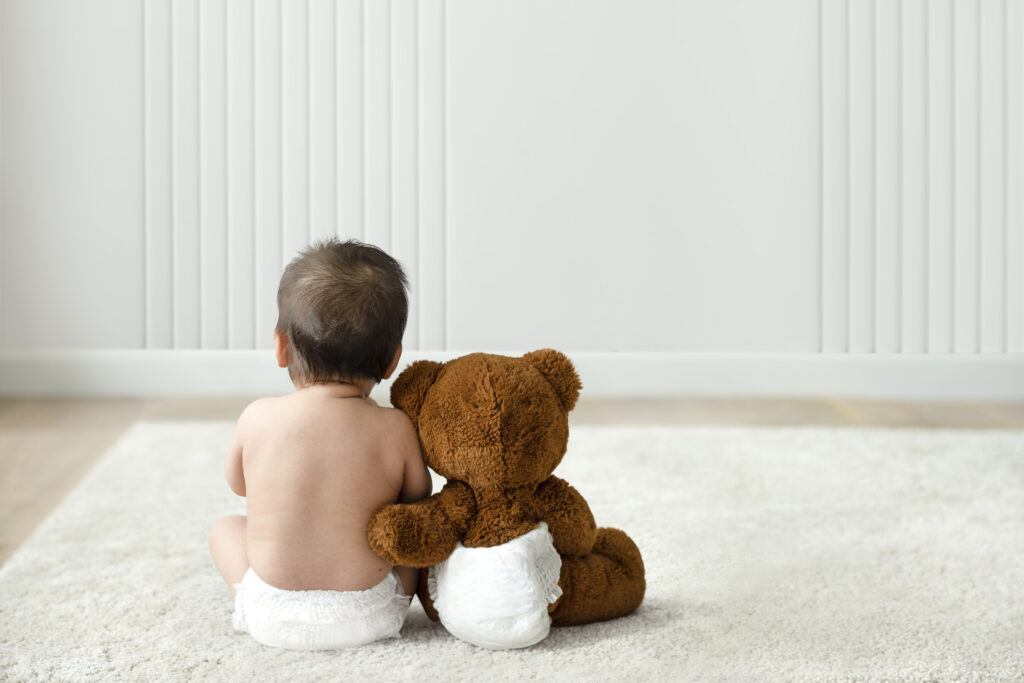How Childhood Trauma Shapes Your Personality

Have you ever wondered if your childhood experiences shape your personality as you grow up? This question has been asked by psychologists since the dawn of psychology, and it is up for debate even today. But when it comes to childhood trauma, it’s clear that the hardships of childhood make you into the person you are today. Emotional or physical trauma can shape the way you think, the way you behave, your personality traits, and even make you prone to some serious mental illness. If you’d like to learn more about how trauma shapes you as a person, feel free to keep reading!
1. You become a perfectionist
Are you a perfectionist with impossibly high standards? And do you feel like instead of helping you strive, your perfectionism is holding you back, making you anxious and stressed all the time? According to research published this year in the Journal of Research in Personality, your childhood trauma may have something to do with it.
The connection between childhood trauma and perfectionism happens when your parents set high expectations and demand everything to be just perfect. They don’t accept a B+, you have to get an A. They don’t care if you’ve already done your homework, you have to study for a few more hours. They don’t care if you want to be an artist, you must go to law school. Your hobbies are not up to their standards. Your room is never clean enough. You didn’t do your chores well enough.
If your parents were like this, you surely understand the exhaustion that comes from never feeling good enough for your parents. As you try to keep up with their demands, this way of thinking becomes a part of you and shapes your personality when you grow up. If you feel like something isn’t perfect, you get overwhelmed with anxiety. And sometimes this can lead to symptoms of depression because you never seem to get satisfied in life.
2. You may develop an eating disorder
Sometimes your mental trauma can express itself through your body. Several studies found the link between anorexia or binge eating disorder and childhood emotional trauma. You may be especially vulnerable to developing an eating disorder if your parents focused too much on your body and look in general.
But it’s not always just about the looks. For trauma survivors, eating disorders may become a mechanism for coping with negative emotions they experience. Through unhealthy eating habits or by controlling your weight, you may feel like you’re finally gaining control over your life. You may feel like your whole life is out of your hands, but at least you still have ownership over your body. Also, you may indulge in emotional eating. This is when food becomes your best friend, and you turn to it when life gets you down. But no matter how good it may feel at the moment, disordered eating just adds up to your trauma in the end.
3. You sometimes act childish
Trauma can make you get stuck in your childhood. All those feelings that you may experience – shame, guilt, humiliation, fear – pull you back and sometimes make you terrified of being an adult. Maybe you feel like you can’t make decisions for yourself or like you’re not capable of handling adult stresses, like going to work, paying the bills, taking care of chores, and so on. This can make you feel overwhelmed at times, so you may turn to your inner child to help you out. This is called age regression, and it’s a psychological defense mechanism where you return to some child-like behaviors to help you cope. This can include baby-talk, throwing temper tantrums, using stuffed animals to self-soothe, and so on. While age regression can be a symptom of some serious mental disorders, sometimes you may temporarily regress in a response to a stressful event or when triggered by a memory of a traumatic event. It can be difficult to cope with it because people may see you as childish and immature, but try to remember that you’re still capable of living your life to the fullest.
4. You develop an insecure attachment
Finally, we can’t talk about the effects of childhood trauma if we don’t mention the attachment theory.
According to the attachment theory, when you were a child, your way of thinking was shaped depending on how your parents treated you. If your parents were loving and caring, you learned that you can trust people to be there for you, and you learned that you are someone deserving of love. This is called a secure attachment. But, if your parents ignored you, neglected you, didn’t respond to your crying and asking for help, you may have developed an insecure attachment. That means that now, you have feelings of low self-worth, you think other people are not trustworthy, or you have a strong fear of people rejecting you.
There are 3 types of insecure attachment, and each one describes how today you may feel towards yourself and others.
- Anxious/preoccupied: if your attachment style is anxious, you might have low self-worth. You feel hurt and unlovable, or like there’s something wrong with you. But at the same time, you crave love and attention. You’re strongly afraid of being abandoned, and you’d do anything to get approval from someone who means a lot to you.
- Avoidant/dismissive: people don’t always have a bad self-image, even if they survived childhood trauma. If your attachment style is avoidant, you may see yourself as strong and independent, but you can’t say the same for other people. Because your parents treated you so poorly, you may have decided that people are just bad in general. So now, you don’t want to be around anyone. You feel like you don’t need friends or a relationship, you don’t want to share your feelings or be intimate with anybody.
- Disorganized/fearful-avoidant: most people with this attachment style had parents who were hot and cold. One moment everything was fine, and the next moment they got showered with insults or yelling. If something similar happened to you, now you’re not sure how to react and how to behave. Maybe you do want to be close to others, but you’re afraid at the same time. What if they start mistreating you out of the blue? Also, your self-image is unstable as well. You’re not sure who you even are, let alone what to think of yourself.
Closing thoughts
These examples are just a few out of many, many more. We’d like to invite you to share your experience, too. How did your childhood experience shape you into who you are today? And how are you coping with it?
We hope that by sharing your experience, you realize that you’re never alone. We’re all here to help out!
Sources:
Age Regression: Trauma, Coping Mechanisms, and Therapy Info Getty. (2022, January 24). Verywell Health. https://www.verywellhealth.com/age-repression-therapy-5212676
Buescher, L. (2022, January 25). Attachment Styles and Their Role in Adult Relationships. Attachment Project. https://www.attachmentproject.com/blog/four-attachment-styles/
Gibson-Judkins, C. L. (2019, November 8). The Role of Childhood Trauma in Eating Disorders. Eggleston Youth Center. https://www.egglestonyouthcenter.org/blog/the-link-between-childhood-trauma-and-eating-disorders/
Smith, M. M., Hewitt, P. L., Sherry, S. B., Flett, G. L., & Ray, C. (2022). Parenting behaviors and trait perfectionism: A meta-analytic test of the social expectations and social learning models. Journal of Research in Personality, 96, 104180. https://doi.org/10.1016/j.jrp.2021.104180
Travers, M. (2022, March 17). Perfectionism’ Come From? Psychology Today. https://www.psychologytoday.com/ca/blog/social-instincts/202203/where-does-unhealthy-perfectionism-come




Responses